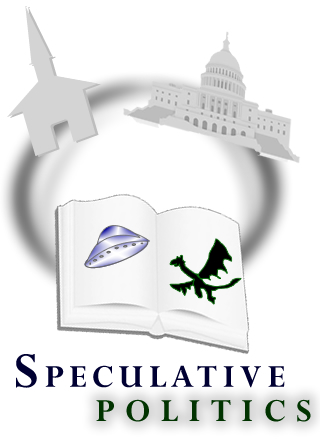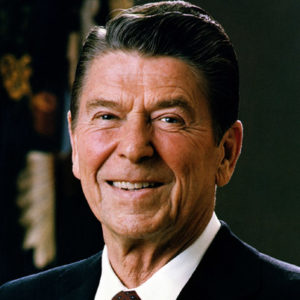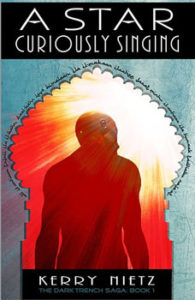Speculative Politics 1: Perspectives From Kerry Nietz
My walk across campus seemed unusually quiet that morning. There was a reason for that, and it had everything to do with where I was going. The event was scheduled to start at 10:30 am. It was a quarter after, but already I could hear muted cheers from Anderson Arena ahead of me. That wasn’t uncommon for Anderson. It was BGSU’s basketball stadium, after all.
The flock of law enforcement officials that protected the building was unusual, though. This was no ordinary sporting event.
 “I’m really late,” I thought, frowning. “Maybe I should’ve skipped class.”
“I’m really late,” I thought, frowning. “Maybe I should’ve skipped class.”
I rarely did, though. Almost never. The first time I had, in fact, was earlier that same week—to get tickets for the event. I had to wait outside for hours.
Thanks to a Logic professor who refused to cancel class, though, my ticket might be almost worthless.
“We have a test every Wednesday,” he’d said. “This week will be no different. If you study, you’ll finish in time to attend the speech…for those that want to.”
I didn’t think much of his attention to the schedule then, aside from the inconvenience. In hindsight, though, I wondered if he hadn’t had ulterior motives.
For those that want to…
I reached the Anderson entrance and showed the police officer what I was carrying: A pocket camera and a mini-cassette recorder. “Okay to take them in?” I asked.
He answered with a “Sure!” and waved me on ahead. I was happy for a moment.
I reached the interior of the stadium. They had the arena configured in a U, with one end of the court set up as a podium, and seats on the floor in front of that. I entered from the opposite end, where the stands were still extended. The place was packed, and extremely loud.
I skimmed the section nearest me. Not a single opening anywhere.
There were a handful of people in a similar position. Stragglers that, for whatever reason, had to come late. “I really should’ve skipped class.”
But it really would’ve hurt my grade.
I walked aimlessly, just taking it all in. There were lots of political signs, lots of students.
A few of those nearest me were dressed in suits. A little odd. One of them approached me and a fellow straggler, with a sign in his hand. “You guys need seats?” he asked.
We both nodded.
He held up his sign. “If you don’t mind holding a sign, I’ll get you seats.”
The suit was wearing a pin that identified him as being with a college political party. The one organizing the event.
I shrugged. Guess I can trust him. Though I hope it doesn’t mean I’m joining anything…
The suit led us straight to a section of seats near one of the locker-room entrances, the place where the team would normally enter from. It wasn’t front row, but it was closer than I was expecting. A lot better than standing at the back.
I was grateful. Both to the suit, and to God. It was a gift, not having to stand. Being able to see.
A few moments later, we heard the sound of a helicopter descending. The crowd’s rowdiness increased. The excitement. My neighbor waved his sign.
It wasn’t obvious where the speaker would enter from. I assumed it would be up near the front somewhere. Near the podium.
The people to my left, those closest the locker-room, began to move toward that entrance. I glanced at my new friend, and with a mutual shrug, we shuffled that way too. We took positions right next to the railing that overlooked the entrance. We kept looking forward, though. Toward the podium.
Then there was movement in the entrance below us. I glanced down and saw police officers, along with men wearing dark suits and sunglasses. Things in their ear. The crowd got more excited. Then I saw…
 Ronald Reagan. He was right there, below me. I was so startled, I didn’t even stick out a hand. I just watched as he smiled and shook the hands of those around me.
Ronald Reagan. He was right there, below me. I was so startled, I didn’t even stick out a hand. I just watched as he smiled and shook the hands of those around me.
The president. Right there!
I couldn’t help but smile.
And I came in late.
A Biblically informed political outlook?
Democrats that know me probably think me a diehard Republican, but I’m really not. To me, politics extend directly from one’s morality, from their core beliefs. I have the maturity to realize that there are honorable and dishonorable people in both parties. That both are capable of good or bad behavior, and that for some things, reasonable people can disagree.
If pressed, I’d most likely call myself a conservative. But in actuality, I’m an issues person. I think the Bible has given us clear precepts for beliefs and actions, and by definition those precepts have to affect how we view issues—and as a consequence—determine the candidates we support.
For instance, abortion is an important issue for me. That derives directly from the Biblical precept that life was originally designed by God (Genesis 1:27), that the process of life is still maintained by God (Psalms 139:13), and that he has a vested interest in each and every person (Jeremiah 29:11-13). So, by applying precept to issue, I would always error in favor of life.
That application of biblical precept extends to what candidates I vote for. I think how someone defines life, defines them. If they see innocent life as having been given by God, and therefore in need of protection, then I can be certain that in other, less important issues, they will be more likely to make the right decision.
Why? Because there is a moral framework in place. If a candidate is pro-life, I know that he or she believes in—or at least respects the concept of—God, and therefore doesn’t think of himself (man) as the determiner of all truth. That also means that he or she views rights as having come from God, not from government, just like the framers of our Constitution declared.
We hold these truths to be self-evident…
If the value of life is negotiable, than anything is negotiable.
So, issues from precepts, morality fuels politics, and politics is all about earthly governance.
Politics in speculative stories?
Politics are a necessity in speculative stories. Whether it is charting the demise of the Dark Lord Sauron, or chronicling the rise of a Messiah King in Dune, there is always a political aspect to the worlds we create. Humans operate within the bounds of societies, and societies always have a form of governance. That governance may be in the shadows, but it is always present—even in the context of a small village hidden in a forest somewhere, even in total anarchy.
Wherever a group exists, there is always a jockeying for position, or a push for autonomy. People need leaders, and some people just need to lead. Epic stories arise directly from political situations: A King trying to regain his kingdom, a slave trying to achieve freedom, and empire that has to fall.
So since there are always politics in stories, then the direct interjection of personal politics into stories should be okay, right?
Well, no, actually. In fact, it might be a huge mistake.
Wait. What? You just said all stories have politics. So why can’t I talk politics?
I said all stories have politics, that doesn’t mean they are soap boxes for author bloviating.
Just like with voting, storyshould be about precepts and issues. Don’t think about right versus left, think good versus evil. Freedom versus slavery.
The DarkTrench Saga is, in many ways, controlled by political questions: What if the world was under sharia law? What if those seeking an Islamic caliphate achieved their goal on a global scale?
Yet my books are primarily driven by issues and precepts: Are all beliefs the same? What distinguishes Christianity from other belief systems? Where is God when it seems all hope is lost?
Such questions transcend the current political climate, whatever it is. (Though they certainly could be brought to the surface by it.) They aren’t right versus left questions. They are human questions.
Too much rhetoric in a book not only makes it preachy, it diminishes its potential significance. It takes it from epic, to trite. From transcendent, to temporary.
We all should seek lasting significance.
Politics in an author’s profile?
Should an author share his political leanings publicly? What face does he present to the world? Is he activist, or political man of mystery?
I’ll admit, it is a sticky wicket. On the one hand, authors are all about beliefs and ideas. We write because we are moved, and we write to inform. Our souls are split open and displayed for all to see. So can we really hide anything?
It is all about nuance, my friend. Nuance and respect.
I try to keep political discussion to a minimum—at least on my author-specific outlets. Given the subject matter of my books, of course, it is difficult. Many of the decisions being made today, politically, appear to be tipping the scale either towards freedom, or away from it. Plus, I think people who have read my novels expect some discussion on beliefs, world events, and the uniqueness of the gospel.
On the other hand, I’ve seen authors (and entertainers) abuse their platform. I know of a fairly famous writer, in fact, who routinely uses one of the social networks as a place to spout liberal pomposity. In the times I’ve tried to engage him, or even offered an opposing opinion, I have been belittled or attacked. Furthermore, when I’ve pointed his demeanor out, I’ve gotten little to indicate that he even sees it as a problem. It is a problem, though.
Now, I’m sure in his mind he feels he’s educating people, so his behavior is justified.
Wrong! First rule of public discourse: Don’t assume the other guy is a buffoon! In our polarized society, there is no better way to lose friends—or as an author—cut your potential book sales in half. Much better to let your beliefs play out naturally in your stories. Yes, there will be people who don’t agree, some will be deeply offended even, but you’re writing fiction. You’re dissecting the great “What if?”
Not shouting on Facebook at someone you’ve never really met.
More than anything, though, be respectful of others and their opinions. They might be wrong, but they are still God’s special creation, and should be treated that way.
Plus there’s always a possibility that you are wrong too.
Our God is big. It is okay to be wrong once and awhile.
And as my opening story shows, it is certainly okay to be late.
(Next week, Sunday, Oct. 14: The Dark Man and König’s Fire author Marc Schooley offers his own view of politics and social policies in fantastic stories.)











































While I understand the importance of being civically involved—and I plan to vote–I try to stay away from it as much as possible. The lack of civility and manners really turns me off.
Thanks for commenting, Galadriel.
I agree with you. Having an honest discussion about many issues these days seems to be next to impossible. (Though from what I’ve read, things in the past weren’t much better.)
This is sad in many ways. The American Constitution and the form of governance it represents is a gift. A type of government where anyone can have a voice, and contribute–a rarity in human history. It is a shame that it so often comes to shouting and name-calling.
But even that is better than blind submission and tyranny.
Kerry:
Anyone want to join in?
Galadriel:
Yet this is precisely what makes for great storytelling — robust debate, even meanness, and “honest” even if nasty rhetoric. I wonder even that if we endorsed more of this in our fiction, news anchors and media would not feel the need to go for such dramatics. Or it could just make the incivility worse. I’m not sure.
At the same time, some of the loudest voices calling for “civility” in public discourse merely want to discourage it in their opponents, while reserving this right for themselves and their allies. I am thus more skeptical of their rhetoric.
Hot political rhetoric is like hot sauce. It’s great to sprinkle on meals of substance and flavor of their own. But you’d be foolish to drink directly from the bottle.
Kerry:
Yes indeed. And if the controversial “lesser of two evils” phrase and definition is troublesome, I like to think of it like this: if God allowed, or appointed as a nation’s ruler, anyone better than the “lesser of two evils,” we would be even more tempted to give honor to that person rather than to Christ as permanent Ruler.
Wow! This has given me a lot of material think about for my own stories. I’ve always love politics, but I’m never quite sure how to work that into the story without being too distracting, or making it stand out too much.
I know it jars me out of the story if I’m reading along and then think, “Oh! The author is talking about modern/current political debates.” (Unless, of course, that’s an expected part of the story.)
I think what’s important is too boil it down to core issues, ones that transcend current debates.
Just curious, did you really meet Ronald Reagan? How awesome!
Hi Lauren! Thanks for stopping by. I’m glad you found something useful in what i wrote. Yes, find the issues that move you, and pour that into your story. Amazing things will happen. 🙂
I was within five feet of Reagan at that speech. A very neat thing to be a part of. It was right before his second term of office.
To add another bit of irony, my wife’s grandfather–a retired Major General–used to work with Reagan and Bush Senior. Has pictures of himself with them. It is very cool. I get to hear his stories. He has a unique perspective on many of our past presidents. 🙂
Lauren:
Kerry:
Frank Peretti has perhaps done this very well, at least in his 1991 novel Prophet. He himself believes the “issue of abortion” took over that story (according to a 1997 interview in World Magazine). I respectfully disagree. Yet either way, the issues of abortion and how the news media alter, repackage, and skew Truth were very central to that novel’s themes — yet Peretti fleshed them out organically, showing how they affected people, not just movements. And with nary an angel or demon in sight.
I respected Frank for the way he described the media’s handling of the abortion issue. Even though I was pro-life when I read it, it was the first time I encountered the idea that the media was controlling the debate, and painting pro-lifers in a certain way to further their own agenda. Made me wonder if that was true…
Then a few years later I met someone who had been part of the early pro-life movement, and I found out that it was absolutely true. He told me how his group would be sitting peacefully on one side of the street, holding hands, singing “Kumbaya” together, while on the other side the pro-abortion folks would be screaming and spitting. The news would show the pro-abortion folks and label them as being pro-life.
There is alot of wisdom in that Benjamin Franklin saying: Believe none of what you hear, and half of what you see.
Peretti actually covered abortion before. He did an audio drama called “Tilly” which was reproduced as a standalone novella. I’m not sure how well it holds up now, as I read it when I was a young teen.
I can’t think of many Christian novels that screamed “politics” to me. A lot did end times, but I’ve not seen too many that dealt with the purely political part of life. Like what duties a Christian owes the government, what a Christian-dominated society would look like politically, or what have you. Knox’s irregulars by J. Wesley Bush tackled it a little, with his future Calvinist society sort of like Starship Troopers. There wasn’t much reflection on it, but it did pretty well, although maybe a little cross-purpose since some of that world’s policies would not sit well even with Christians.